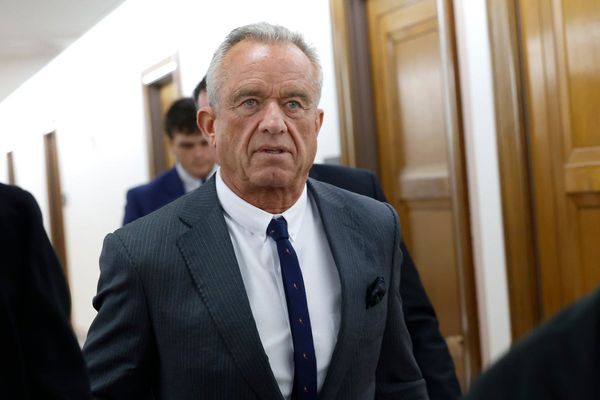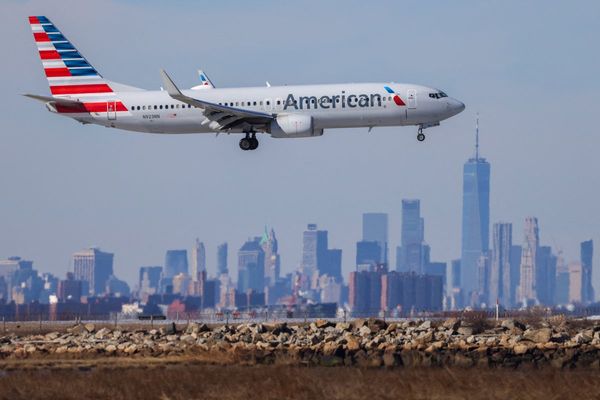
Islamabad, Pakistan – As the rescue of eight people, including six children, from a dangling cable car at almost 275m (about 900 feet) in Pakistan went on, the entire country was gripped with suspense and fear.
The Tuesday, August 22 operation, which was described by the Pakistan Army as “very difficult”, lasted for more than 10 hours and involved multiple helicopters and local zip line experts.
On Tuesday morning, six children and two adults boarded a rickety cable car, locally known as a “dolly”, in Pashto village, roughly 60km (37 miles) from Battagram district in the northwestern Khyber Pakhtunkhwa province.
It was a journey they took on a daily basis on the way to their schools and shops. Five minutes into the roughly 10-minute journey, two of the three cables snapped, leaving the cable precariously hanging.
Military helicopters arrived on the scene later but despite repeated attempts for the next few hours, they were initially unable to make any progress.
A local cleric, Mufti Hassan Zaib, said he was at the spot for almost the entire day as rescue efforts unfolded.
“I reached there around midday and a lot of other locals were waiting for rescue efforts to start. Some offered their services, but the administration asked them to wait for the army helicopters to arrive,” he told Al Jazeera.

Sahib Khan, a resident of the nearby Bisham town, reached the location with his elder brother Nasir and two other colleagues.
The Khan brothers, who were called by the local administration, had been running a makeshift cable car business in the region – dotted with hills and tall trees. Using this mode of transportation remains the fastest way to reach one’s destination as the journey could otherwise take hours.
When they reached the location, they were asked to wait for the army helicopter to conduct the rescue.
“We told the administration to give us a chance to carry out the rescue but were asked to wait,” Nasir, 29, told Al Jazeera. “We were there for four to five hours but by the evening, the army was able to rescue just one child using the helicopters. Then, it got dark.”
Half an hour before sunset, rescue workers retrieved the first passenger: 14-year-old Irfan, who was taken out through a sling operation using the helicopter.
His father Umrez watched the rescue with his heart in his mouth.
“It’s a miracle, a gift of God, that my son is still alive,” the 55-year-old told Al Jazeera.
“To see your child hanging in the air like that, it’s probably one of the worst sights … and being so helpless to do anything about it.”
Hope turned to fear as it became clear that the aerial operation would be impossible to continue after sunset. It was close to 12 hours since the incident and patchy mobile phone signals in the area made communication tougher.

That is when the Khan brothers’ team swung into action.
Pictures and videos posted on social media show a young man who had prepared a smaller, temporary dolly through a zip line with his brother and colleagues.
With Nasir on the ground and helping with the pulley, Sahib, the younger of the two, hopped on the dolly after 7pm (14:00 GMT) – almost 12 hours after the incident – and made his way towards the children, knowing that a minor mistake could cost the lives of seven people in the cable car – and his life, too.
As he approached the dangling gondola, Sahib remembers seeing exhausted children who were barely able to talk.
“They were shocked and asked if everybody had forgotten about them on the ground,” he told Al Jazeera.

Tying a rope to the children was a difficult ask. Sahib secured himself on his smaller cable car and pulled closer before reaching out to tie one of the children sitting in the hanging gondola.
The biggest challenge, he said, was to keep the children calm.
“They were worried about the move, but I assured them they are with me, and I will take them home,” the 27-year-old said.
As Sahib made his way back with the second child, he said the nervousness was palpable in the crowd and everybody was seen to be praying.
“Our dolly was small, but we were afraid of the load on the zip line. It was a little bit windy and very dark, everything was difficult. But by the grace of God, we were able to bring the second child back down,” he said.
Local rescuers took over after Sahib’s return, using the same method to retrieve the remaining four children and the two adults.
As all eight people were brought back down, local cleric Zaib, who had remained at the site till the end of the operation, said the rescue was a “miracle”, but added his area needed help.
A former teacher, the 28-year-old said that while the eight were lucky, it may not be the same for the others who frequently take the dolly.
“We hope that the government will help us. These children are trying to seek education, they should not have to put their lives at risk every day.”







